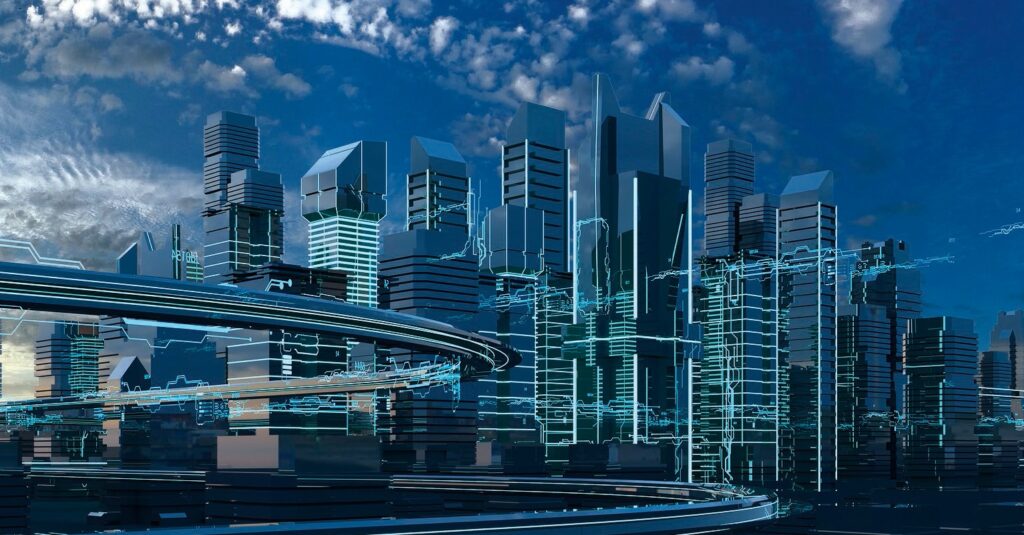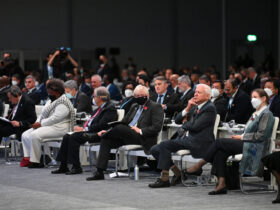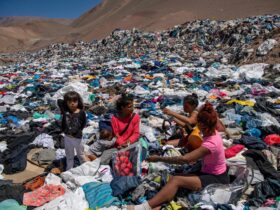LOS ANGELES — As Saudi Arabia’s dependency on oil has grown over the years, accounting for almost 50 percent of the country’s gross domestic product, the Saudi government has started to look for ways to diversify its revenue. Out of this necessity, “Saudi Vision 2030,” a diversification initiative, was born.
This 14-year long plan was announced in 2016 by Saudi Arabia’s Crown Prince Mohammed bin Salman and aims to reduce Saudi Arabia’s dependency on the oil industry. This plan includes several infrastructure, education and renewable energy projects, but by far the most ambitious project within this 2030 vision is the city of Neom.
The city of Neom is the prince’s crown jewel and he expects that it will put the country on the international stage and not only manage to be the face of sustainable development, city building and living, but also a major hub for travel, tourism and transportation.
The city is planned to be developed in the Tabuk province, which is located in the northwest part of the country. The area borders the Red Sea to the south, Jordan to the north and the Gulf of Aqaba to the west, across from which is Egypt’s Sinai peninsula.
Construction has already begun after Neom’s announcement at the Future Investment Initiative conference in Riyadh on October 24, 2017. Neom Bay, which includes some resorts and luxury apartments, has already begun construction. Additionally, Neom Bay Airport was inaugurated in 2019 and will serve as a temporary hub until the main airport is finished.
The project has been estimated to cost around $500 billion dollars and set to open the first stage by 2025 with the main attraction being The Line, a city shaped in a straight line that will run 170km from the coast towards the inland desert and would take up $200 billion from the budget. The city is planned to be a fully sustainable project that would rely 100% on renewable energies to run. The project would also, according to the Saudi government, create 380,000 jobs and increase its GDP by $48 billion.
“Why should we sacrifice nature for the sake of development?” Prince Mohammed said in the televised announcement of The Line in January. “We need to transform the concept of a conventional city into that of a futuristic one.”
According to the Saudi government, The Line would consist of three different levels. On the ground floor there would be an uninterrupted pedestrian walkway with parks. The second level would have the services, stores and other commercial spaces. And the third level would be what is being called The Spine.
In the same announcement made by bin Salman, he mentioned that the city is being built with a future population of one million people in mind. He further stated that all of these people would be just five minutes away from any good or service they would need for their day to day lives.
The Neom project and more recently The Line have been heavily promoted online and are widely seeking additional foreign investment to help develop the city. Several YouTube advertisements and videos as well as viral explanatory videos have been key to the growing awareness of the project abroad.
This ambitious project, however, has also raised some questions and concerns surrounding the true intentions behind its construction, as well as the ethical aspects that surround the city building as well as the country as a whole.
One major controversy surrounding Neom is the current and future displacement of the Al-Huwaitat tribe. With around 20,000 people facing eviction and many Al-Huwaitat advocates being killed in the past years, the project has faced international backlash from several NGOs across the world. On April 13, 2020, Abdul Rahim al-Huwaiti, one of the main advocates from the tribe, was killed by Saudi security forces in what they allege was self defence as Al-Huwaiti had fired first. Al-Huwaiti was a major critic of the Neom project, and many suspect that this could have been the reason for his death.
“They have begun the process of removing people, beginning with surveying homes with the intent of removing people and deporting them from their land,” said Al-Huwaiti on a video recorded on the day of his death referring to the Saudi forces reaching his hometown. “They arrested anyone who said they’re against deportation, they don’t want to leave, they want to remain [in]their homes, that they don’t want money.”
Despite highlighting on the promotional website that the city will be built on “virgin land,” the testimonies from local tribes say otherwise. This is one of the major controversies that the Neom project faces, but with the recent announcement of The Line it seems like the Saudi government will continue the city’s development.
This project is also very important for Saudi Arabia, not only due to its potential revenue in tourism and investment, but it will also allow for Saudi Arabia to assume strategic control of trade and transit within the region and beyond.
The area where Neom will be developed is adjacent to the Strait of Tiran, where the Saudi administered islands of Tiran and Sanafir lie just off Egypt’s beach resort city Sharm El Sheikh on the Sinai peninsula. Alongside the plan to build the city, there is a plan to build a bridge connecting both countries by land.
This bridge would completely change the way the region works as transporting goods through land from Egypt to Saudi Arabia would become possible, completely bypassing the current need to go through Israel. The bridge would also give Saudi Arabia control over the Strait as well, which could potentially increase the country’s influence over Asian exports to Israel.
This would also help Saudi Arabia become one of the main hubs for travel and transportation, although the development would face fierce competition from neighbouring Qatar and the United Arab Emirates, two countries which have established themselves as powerhouses in the aviation industry with their major airlines Qatar Airways and Emirates respectively.
The government wants to incentivise investors by establishing Neom as a free trade zone with its own tax and legal system, the latter supposedly being structured around more open and progressive ideals. This contrasts the strict Sharia law that prevails within the rest of the country which has been criticized for numerous human rights violations. This is something similar to what the UAE has already done with Dubai since 2006, where the Emirati government established an international court system to better appeal to the international investors.
The project as a whole is Prince bin Salman’s attempt at creating a place that can serve as a major source of revenue and international influence for the Saudi government, and which can put the country on the international stage to not only help diversify the economy, but to also extend the reach of the Saudi influence within the global community.
The positive, progressive and innovative prospects that the city is set to have, however, must be looked at through a critical lens, as the Crown Prince has proved that he may disregard locals or other people that stand in the way of his projects, even when they are within their right to protest the development.
It remains to be seen if the Saudi government is up to the task of constructing this massive and ambitious project, and if they will be able to deliver on all of their sustainability promises while bettering their efforts to secure an ethical development.







